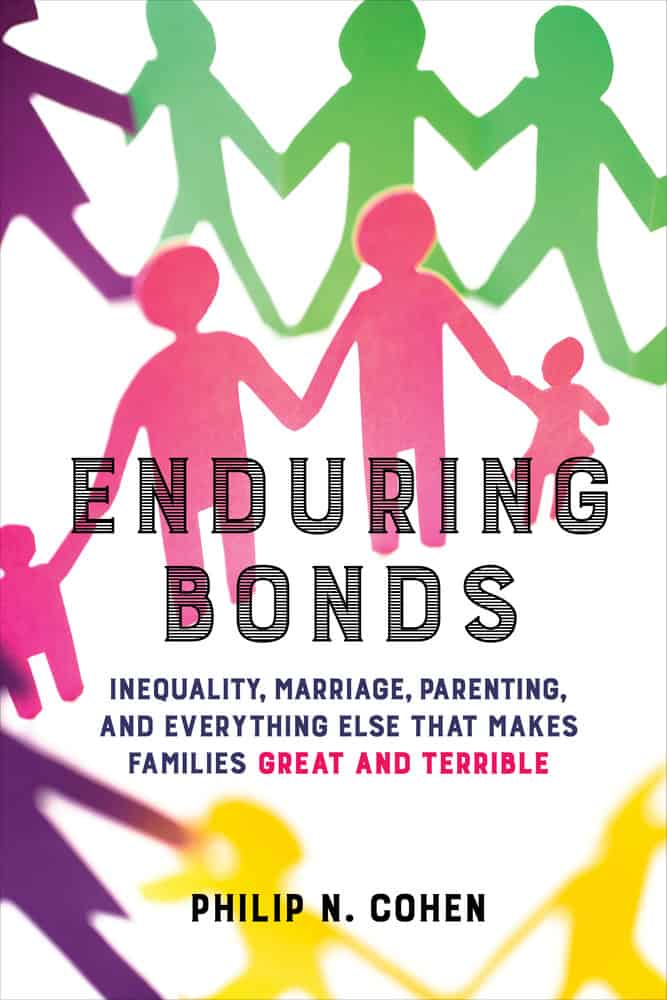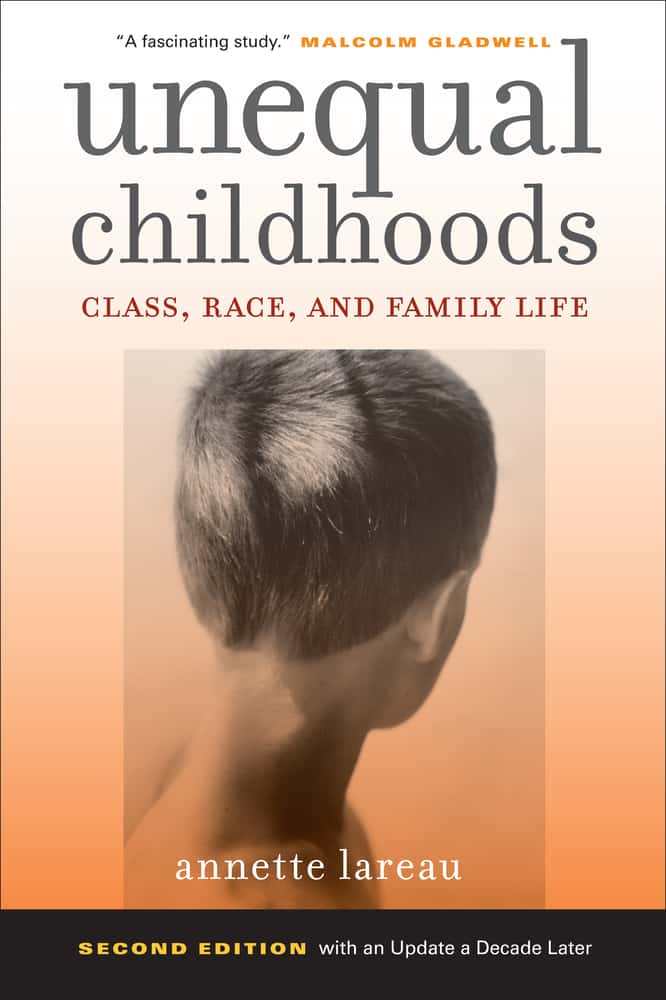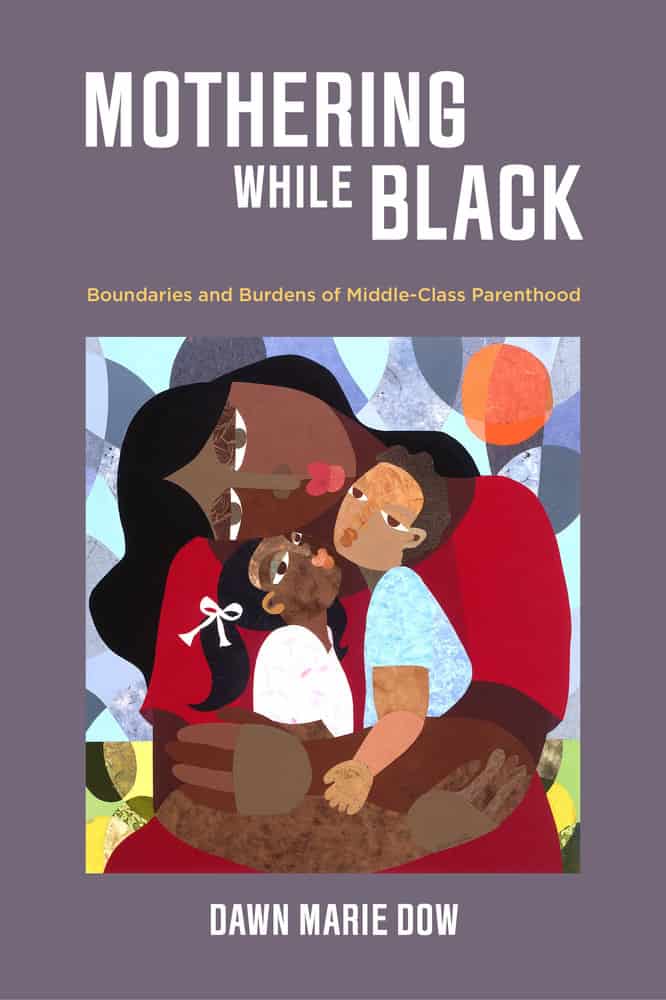 In a New York Times piece entitled The Relentlessness of Modern Parenting, Claire Cain Miller interviews several scholars—including our very own Philip N. Cohen, Dawn Dow, and Annette Lareau—about how parenthood in the U.S. has become more demanding.
In a New York Times piece entitled The Relentlessness of Modern Parenting, Claire Cain Miller interviews several scholars—including our very own Philip N. Cohen, Dawn Dow, and Annette Lareau—about how parenthood in the U.S. has become more demanding.
Cohen, author of Enduring Bonds: Inequality, Marriage, Parenting, and Everything Else That Makes Families Great and Terrible and the Family Inequality blog, notes that “as the gap between rich and poor increases, the cost of screwing up increases. The fear is they’ll end up on the other side of the divide.”
The New York Times piece spurred KPCC AirTalk to do an interview with several scholars on Exploring Intensive Parenting.
The Difference Between Working Class and Middle Class Parenting
 Lareau, author of Unequal Childhoods: Class, Race, and Family Life, With an Update a Decade Later and the scholar who coined the term “concerted cultivation“, discusses the difference between working and middle class families: “All parents want their children to be healthy and happy. But working class families saw adulthood as looming with many difficulties. So they saw childhood as a chance to protect their children. Their children played outside, watched TV, hung out with their cousins. They tended not to have organized activities and if they had them, it was for a different purpose—just to keep them busy. Upper middle class parents told their kids they could do anything. They didn’t want them to be Mozart but they did want them to learn piano. So parents were always cultivating their kids and they thought it was their duty to do so.”
Lareau, author of Unequal Childhoods: Class, Race, and Family Life, With an Update a Decade Later and the scholar who coined the term “concerted cultivation“, discusses the difference between working and middle class families: “All parents want their children to be healthy and happy. But working class families saw adulthood as looming with many difficulties. So they saw childhood as a chance to protect their children. Their children played outside, watched TV, hung out with their cousins. They tended not to have organized activities and if they had them, it was for a different purpose—just to keep them busy. Upper middle class parents told their kids they could do anything. They didn’t want them to be Mozart but they did want them to learn piano. So parents were always cultivating their kids and they thought it was their duty to do so.”
The Role of Race in Middle Class Parenting
 Dow, author of Mothering While Black: Boundaries and Burdens of Middle-Class Parenthood, shares the experience of black middle class families: “Black middle class parents are also engaged in a lot of these activities in terms of enrolling their children in extra curricular activities and trying to give them access to activities that reproduce their middle class status in the next generation. But they are often carefully considering factors such as the diversity of those activities so their children don’t feel racially isolated. Oftentimes they are trying to instill some version of a black racial identity in their child in addition to helping them reproduce their economic status. Their priorities in choosing activities may contain different concerns that are related to protecting their children from early experiences of racism and that kind of concern varies from their sons versus their daughters so that makes them sensitized to factors such as diversity in the school population as well as the teachers and administrator. And because of that, then often confront more limitations for choices because there may not be a black middle class neighborhood with black middle class schools that has the same sort of resources that the white middle class neighborhood might have.”
Dow, author of Mothering While Black: Boundaries and Burdens of Middle-Class Parenthood, shares the experience of black middle class families: “Black middle class parents are also engaged in a lot of these activities in terms of enrolling their children in extra curricular activities and trying to give them access to activities that reproduce their middle class status in the next generation. But they are often carefully considering factors such as the diversity of those activities so their children don’t feel racially isolated. Oftentimes they are trying to instill some version of a black racial identity in their child in addition to helping them reproduce their economic status. Their priorities in choosing activities may contain different concerns that are related to protecting their children from early experiences of racism and that kind of concern varies from their sons versus their daughters so that makes them sensitized to factors such as diversity in the school population as well as the teachers and administrator. And because of that, then often confront more limitations for choices because there may not be a black middle class neighborhood with black middle class schools that has the same sort of resources that the white middle class neighborhood might have.”

